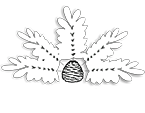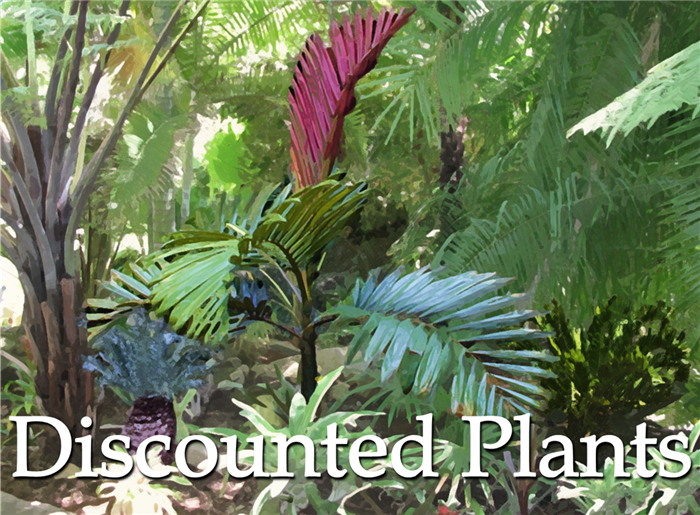This unusual palm that has all of its leaves in a single plane. That is to say from the front, it is a fairly large, “Caryota-appearing” palm tree. But, looking from the side, it is narrow and you can hardly see it. The dictionary definition of “distichous” is: “Arranged in two vertical rows on opposite sides of an axis: distichous leaves. ” In this case, the trunk of the palm is the axis.
This species is native to the Himalaya Mountains in Asia, spreading from northern India across to northern Thailand. There it grows at altitudes of up to 4000 feet. Because of it’s heritage and as you might guess, it does have some cold hardiness and can easily be grown in many areas of Southern California. It tolerates temperatures down to about the mid to upper twenties F. It prefers full sun. Mature height is about 30 feet. Usually this species is single trunk, but in the wild suckering specimens are found. This is not to confuse it with another suckering species, Wallichia densiflora, which is always a clustering species.
Wallichia could be confused with Arenga and Caryota, both of which are also from the same part of the world. All have leaflets that have jagged or toothed apical ends as shown here. All also go through a flowering process that begins at the upper trunk and works its way down the trunk over time. And, all have stems that die after suckering. When there is only one stem (as with this species), the tree will die after it flowers. Seeds of Wallichia disticha are very small as shown here. The back sides of Wallichia and Arenga leaflets are silver whereas Caryotas are green on the back side. This helps in identifying the genus. Trunks of Wallichia disticha are also covered with dense brown fibers as shown here.
We have very limited numbers of this species for sale. I’m showing below as 5 gallon and 15 gallon plant as well as seeds (very small) of this species. For someone who likes different species, this one is for you. And, we do still have a few available. As mentioned, these are near impossible to find for sale.
 |
 |
|
- PLUMERIA TREES FRAGRANT BLOSSOMS - December 15, 2024
- AGAVE ATTENUATA A “DOCTOR SEUSS” PLANT - December 15, 2024
- ENCEPHALARTOS CERINUS - December 15, 2024












